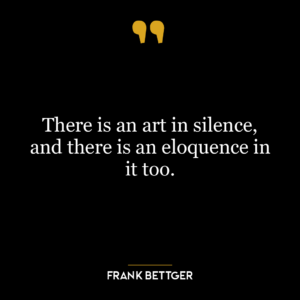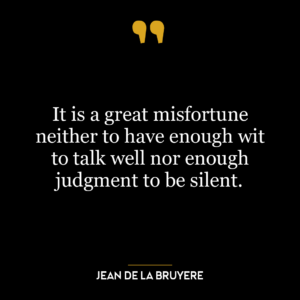This quote by Epictetus emphasizes the power and wisdom of silence and brevity. It suggests that one should speak only when necessary, and even then, use as few words as possible. This is not to say that communication is not important, but rather that unnecessary or excessive words can dilute the power of one’s message or reveal ignorance or thoughtlessness.
By advocating for silence, Epictetus is not encouraging us to be antisocial or withdrawn, but to listen more and speak less. Listening allows us to understand better, learn more, and respond more effectively. This is especially significant in an age where everyone seems to have a voice through social media and there’s a constant barrage of information and opinions. The ability to stay silent amidst the noise can be a valuable tool in discerning what is truly important and necessary.
As for the part about speaking only what is necessary and in few words, it suggests that clarity and conciseness are more valuable than verbosity. In our personal and professional lives, clear and concise communication can prevent misunderstandings, save time, and make a stronger impact. This is particularly relevant in today’s fast-paced world where attention spans are short and time is precious.
In the context of personal development, this quote can be interpreted as a call for self-restraint and thoughtfulness. By practicing silence, we can become more mindful, patient, and understanding. By speaking only what is necessary and in a concise manner, we can become better communicators and more effective influencers.
In a broader societal context, this quote could be seen as a commentary on the value of quality over quantity. In a world saturated with information, the ability to discern and deliver concise, necessary information is a valuable skill.
In essence, this quote encourages thoughtful communication – listening more than speaking, and when speaking, doing so with intention and brevity.










